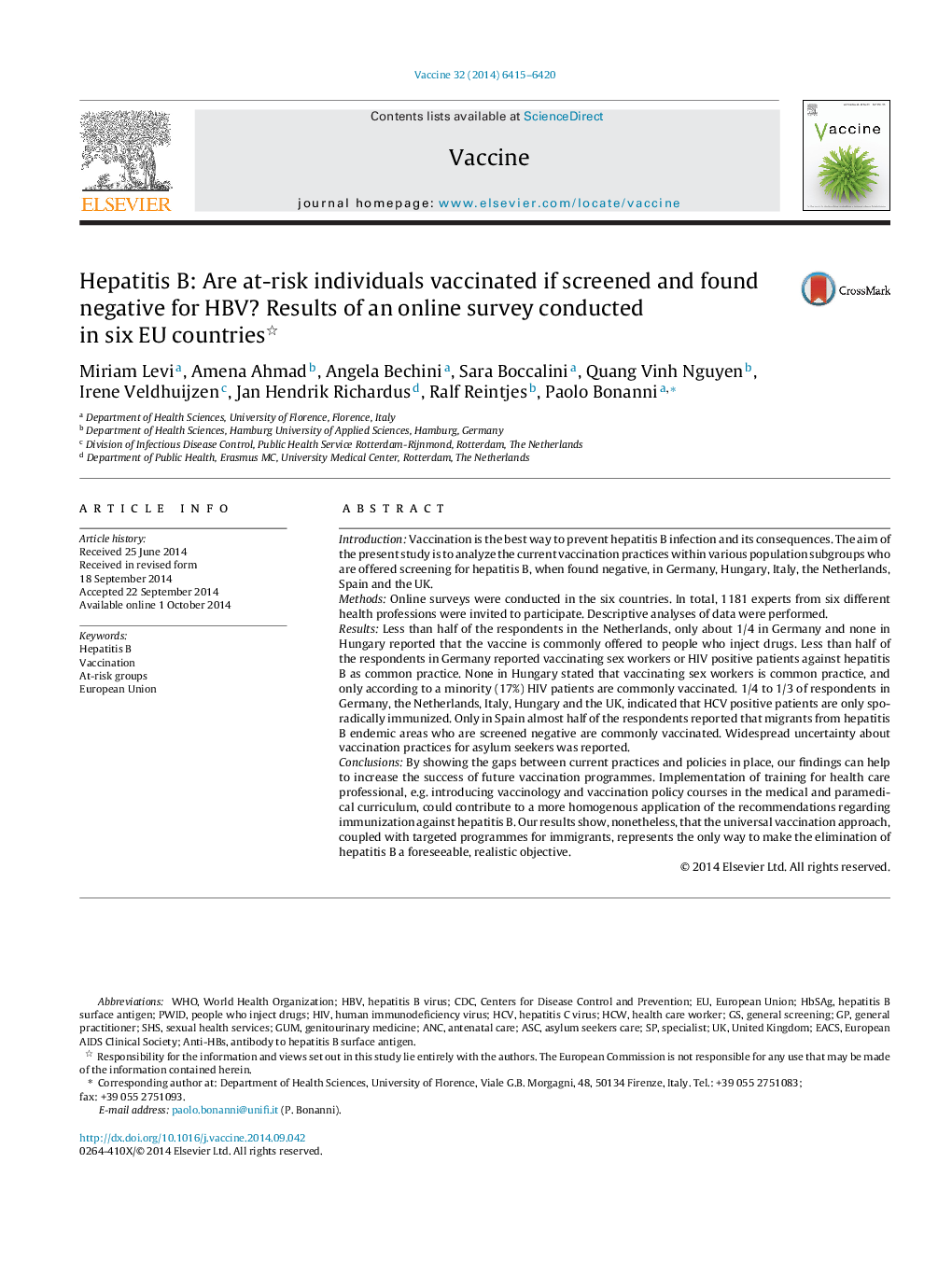| Article ID | Journal | Published Year | Pages | File Type |
|---|---|---|---|---|
| 10965603 | Vaccine | 2014 | 6 Pages |
Abstract
By showing the gaps between current practices and policies in place, our findings can help to increase the success of future vaccination programmes. Implementation of training for health care professional, e.g. introducing vaccinology and vaccination policy courses in the medical and paramedical curriculum, could contribute to a more homogenous application of the recommendations regarding immunization against hepatitis B. Our results show, nonetheless, that the universal vaccination approach, coupled with targeted programmes for immigrants, represents the only way to make the elimination of hepatitis B a foreseeable, realistic objective.
Keywords
Genitourinary medicineHBsAgSHSsexual health servicesANCHCWCDCASCPWIDGumantibody to hepatitis B surface antigenHepatitis B surface antigenEuropean Unionpeople who inject drugsWorld Health OrganizationAnti-HBsSpecialistAntenatal careCenters for Disease Control and PreventionHepatitis BHBVHepatitis C virusHCVVaccinationhuman immunodeficiency virusHIVhepatitis B virusUnited KingdomGeneral practitionerHealth care workerWHO
Related Topics
Life Sciences
Immunology and Microbiology
Immunology
Authors
Miriam Levi, Amena Ahmad, Angela Bechini, Sara Boccalini, Quang Vinh Nguyen, Irene Veldhuijzen, Jan Hendrik Richardus, Ralf Reintjes, Paolo Bonanni,
